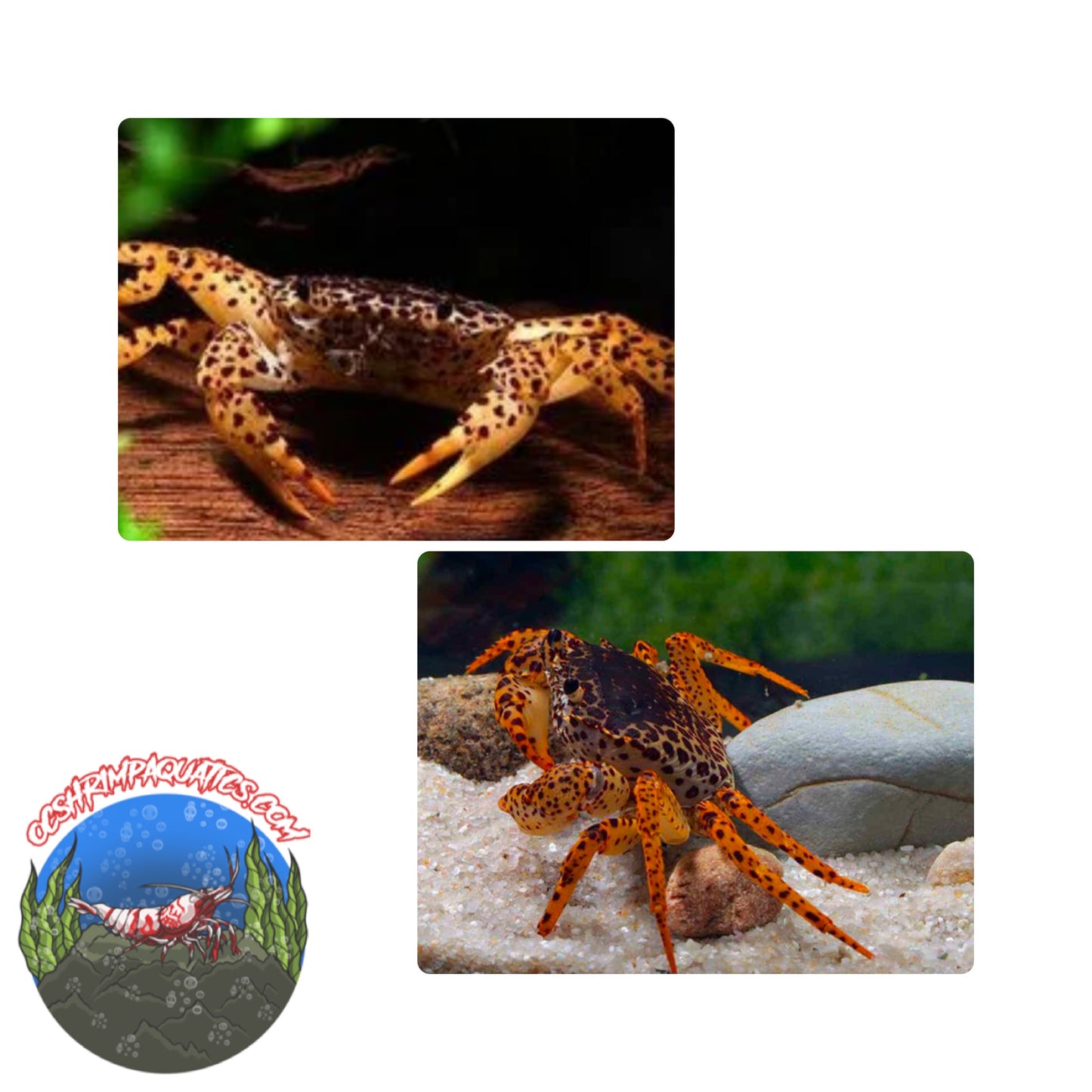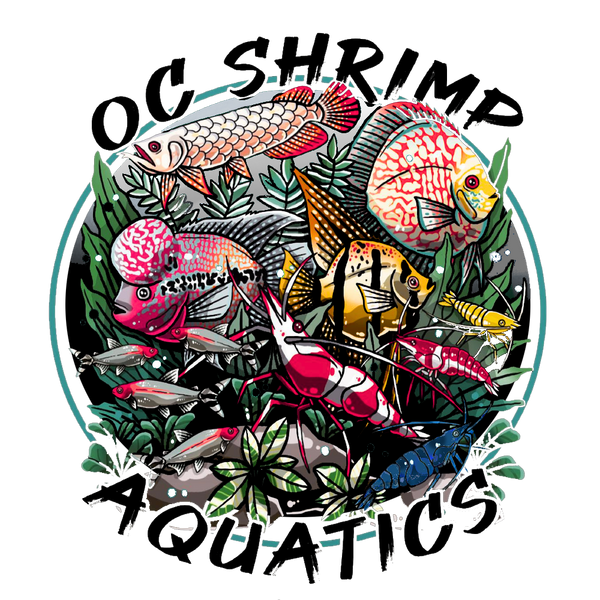OC SHRIMP AQUATIC
PANTHER CRAB
PANTHER CRAB
Couldn't load pickup availability
Share
The Panther Crab (Geosesarma spp.) is a striking and relatively uncommon species of freshwater crab known for its vibrant colors and interesting behavior. They are popular among aquarists due to their unique appearance and active nature. Here’s a comprehensive guide to caring for Panther Crabs:
Tank Setup
-
Tank Size: A minimum of 20 gallons is recommended, though a larger tank is better for maintaining stable water conditions and providing ample space.
-
Tank Environment: Panther Crabs thrive in a tank that provides both terrestrial and aquatic environments. Create a setup with both land and water areas. Use rocks, driftwood, and plants to create hiding spots and climbing areas.
-
Substrate: Use a mix of fine gravel and sand for the aquatic area. In the terrestrial section, provide a substrate like soil or coconut fiber that retains moisture and allows for burrowing.
Water Conditions
-
Temperature: Maintain a stable water temperature between 74-82°F (23-28°C). Use a reliable heater to keep the temperature consistent.
-
pH Level: Panther Crabs prefer slightly acidic to neutral water. Aim for a pH range between 6.0 and 7.5.
-
Water Hardness: They do well in soft to moderately hard water. Aim for a hardness range of 4-12 dGH.
-
Filtration: Use a filtration system that keeps the water clean but does not create strong currents. A sponge filter or a gentle hang-on-back filter is ideal. Regular water changes (about 20-30% weekly) are important for maintaining water quality.
Habitat
-
Land Area: Ensure there is a dry or semi-dry land area where the crabs can climb, rest, and forage. This area should be easily accessible from the water section.
-
Water Area: Provide a shallow water section where the crabs can drink and bathe. The water should not be too deep, as Panther Crabs are not strong swimmers.
-
Humidity: Keep the humidity high in the land area. You can use a water mister or maintain a moist substrate to help with humidity.
Diet
-
Diet: Panther Crabs are omnivorous. Feed them a varied diet that includes high-quality pellets or flakes, live or frozen foods like bloodworms, brine shrimp, and small pieces of vegetables (e.g., zucchini, carrots).
-
Feeding: Feed them once or twice a day. Provide only as much food as they can consume within a few minutes to avoid overfeeding and pollution.

Order and get 100 reward points
Earn points by signing up for our rewards program

